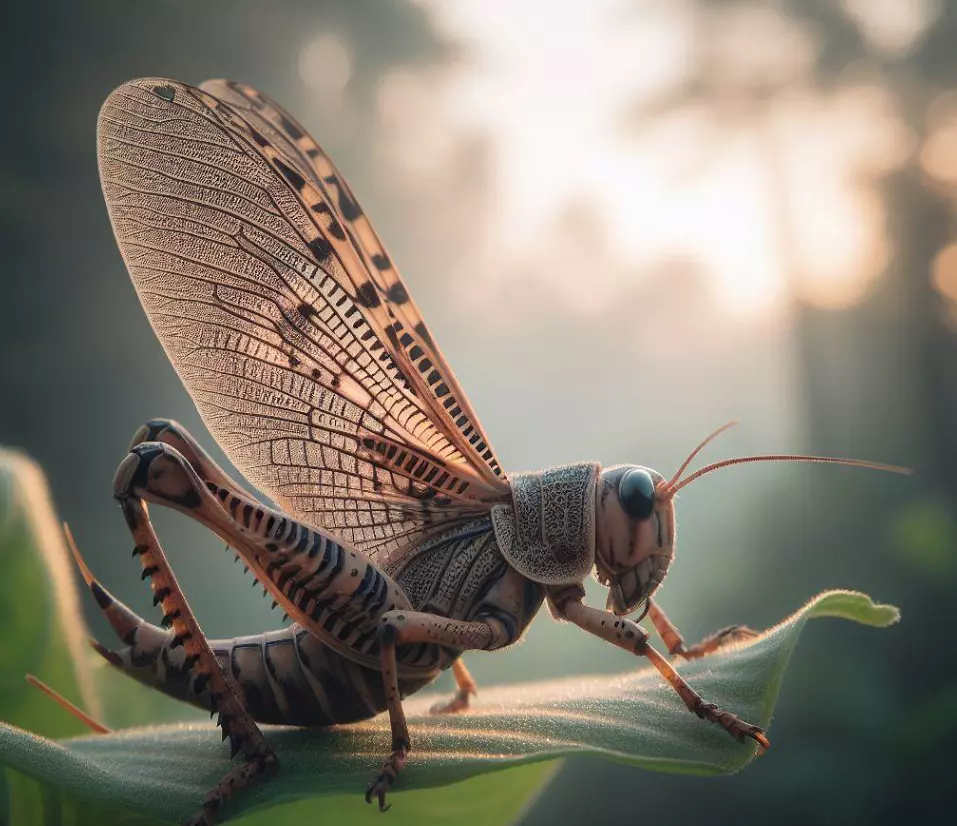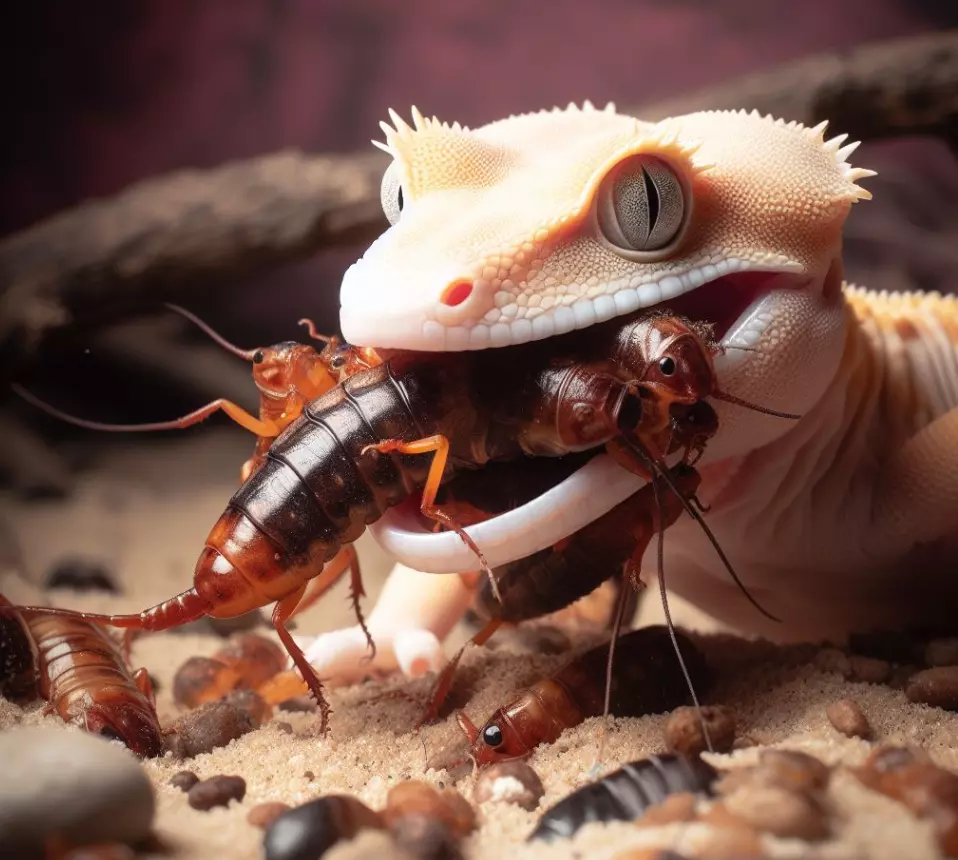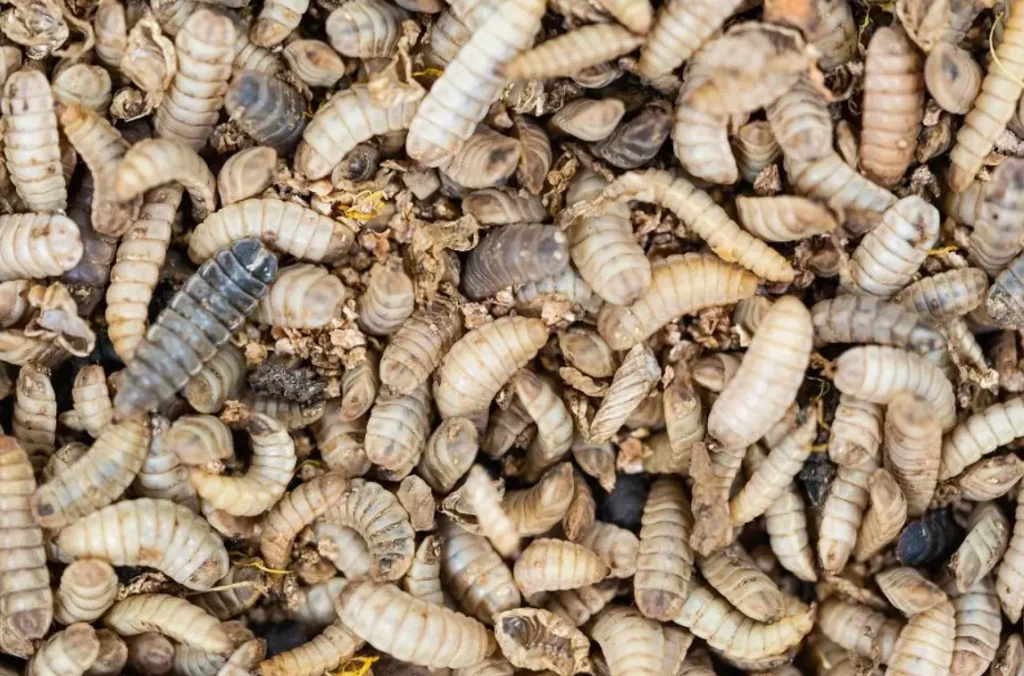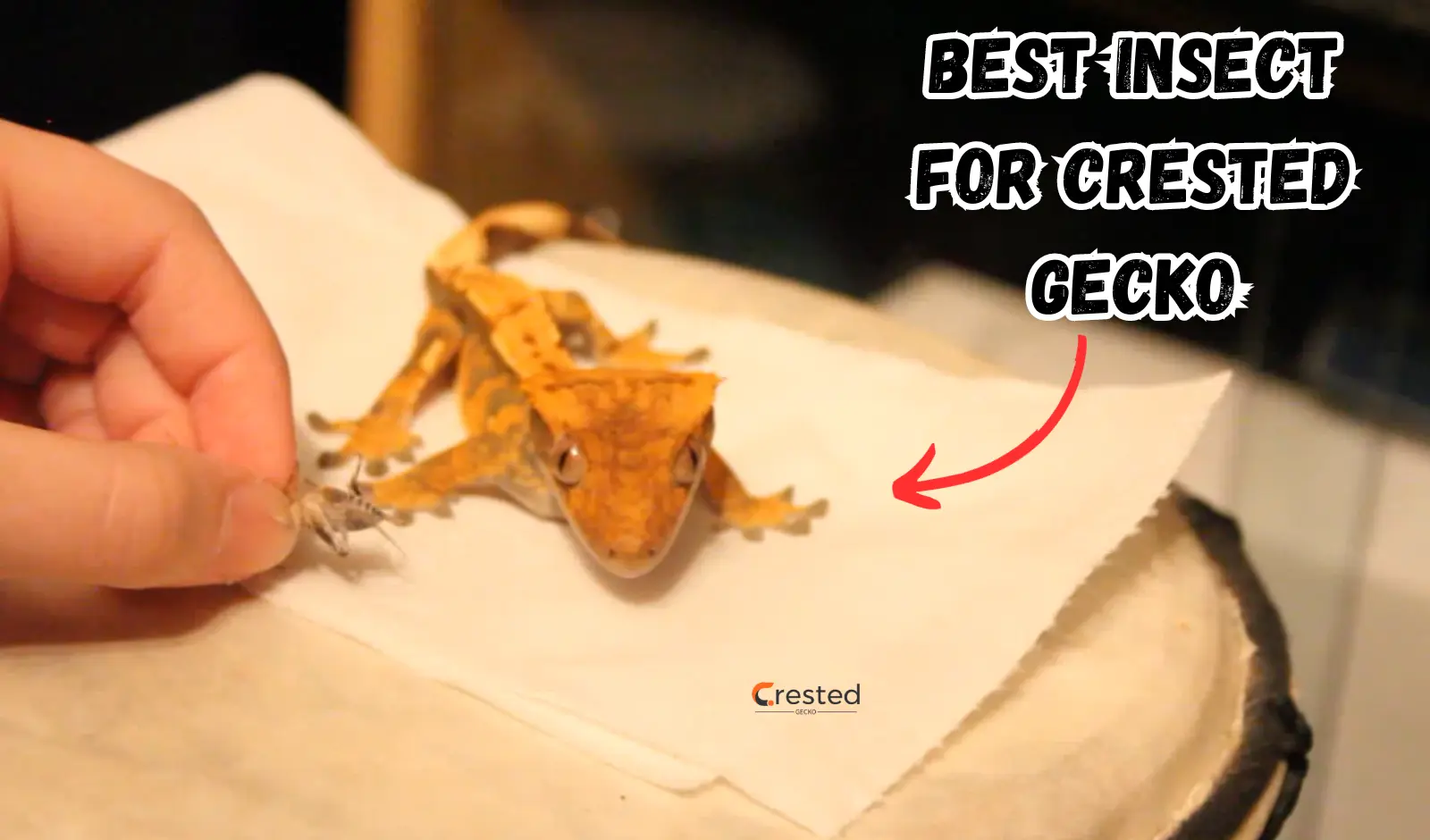Insects are essential for crested geckos because they offer necessary nutrients like protein, fat, calcium, phosphorus, and various vitamins for their health and growth.
However, not all insects are suitable for crested geckos.
Some can be too big, tough, toxic, or fatty for them.
That’s why it’s crucial to select the best insects for crested geckos that are safe, nutritious, and the right size for their needs.
1. Crickets

Crickets are a common and readily available insect for reptile pets.
You can find them in pet stores or online in various sizes. Crickets offer high protein and moisture for geckos if fed properly.
However, they have their drawbacks.
They can be noisy, smelly, and skilled at escaping. If not bred and maintained in clean conditions, they might carry parasites or diseases. They also have high phosphorus levels, which can affect calcium absorption if not balanced with a calcium supplement.
While giving them to your gecko, choose ones that are no larger than the space between its eyes.
Also, lightly dust them with calcium powder, with or without vitamin D3, depending on your lighting setup.
2. Dubia roaches

Dubia roaches are another popular and convenient insect for crested geckos.
Originally from South America, they are also known as orange-spotted roaches or Guyana-spotted roaches. These insects are larger, soft-bodied, and move slowly, making them easy to breed and care for.
Compared to crickets, Dubia roaches have several advantages.
They are quieter, cleaner, odorless, and have a longer lifespan. They are also less likely to carry parasites or diseases and have lower phosphorus levels.
To feed dubia roaches to your crested gecko, follow the same guidelines as for crickets regarding size, gut-loading, dusting, and presentation.
Just ensure that the roaches are alive and active when you feed them to your gecko, as dead or dying roaches may lose their nutritional value or pose a health risk.
3. Black soldier fly larvae

Black soldier flies larvae, also known as phoenix worms, calciworms, or nutri-grubs, are the larvae of black soldier flies.
Basically, these insects aid in breaking down organic waste and reducing greenhouse gas emissions.
They resemble small, white, and wiggly creatures and are packed with protein, calcium, and a useful fatty acid called lauric acid for crested geckos, which can help prevent infections.
Black soldier fly larvae offer several benefits for crested geckos.
They are easy to store and handle, and they come with a natural calcium coating that provides extra calcium for crested geckos.
Additionally, their calcium-to-phosphorus ratio is well-balanced, so no extra calcium supplementation is necessary.
Other insects
Apart from crickets, dubia roaches, and black soldier fly larvae, you can occasionally treat your crested gecko with other insects like:
- Silkworms
- Superworms
- Locusts
- Snails
- Blue-bottles
F.A.Q.s
Q: What insects can I feed my crested gecko?
You can feed your crested gecko a variety of insects, including crickets, roaches, mealworms, waxworms, and fruit flies.
Q: Are there insects that crested geckos should avoid?
Avoid feeding your crested gecko insects that are too large or tough for them to consume, such as large adult crickets.
Also, stay away from insects caught in the wild, as they may carry parasites or pesticides.
Q: Can I breed my own insects for my crested gecko?
Yes, many crested gecko owners breed their own insects, such as roaches or fruit flies, to ensure a constant supply of healthy, well-fed prey.
It is the most cost-effective and convenient method.


[…] crickets are a common feeder insect for crested geckos, some individuals simply prefer other options like dubia roaches, mealworms, or […]
[…] these diets are formulated to be nutritionally complete, offering some variety with live insects provides several […]